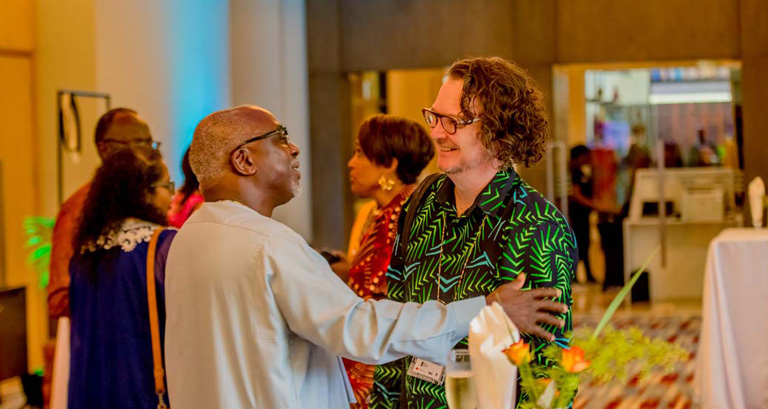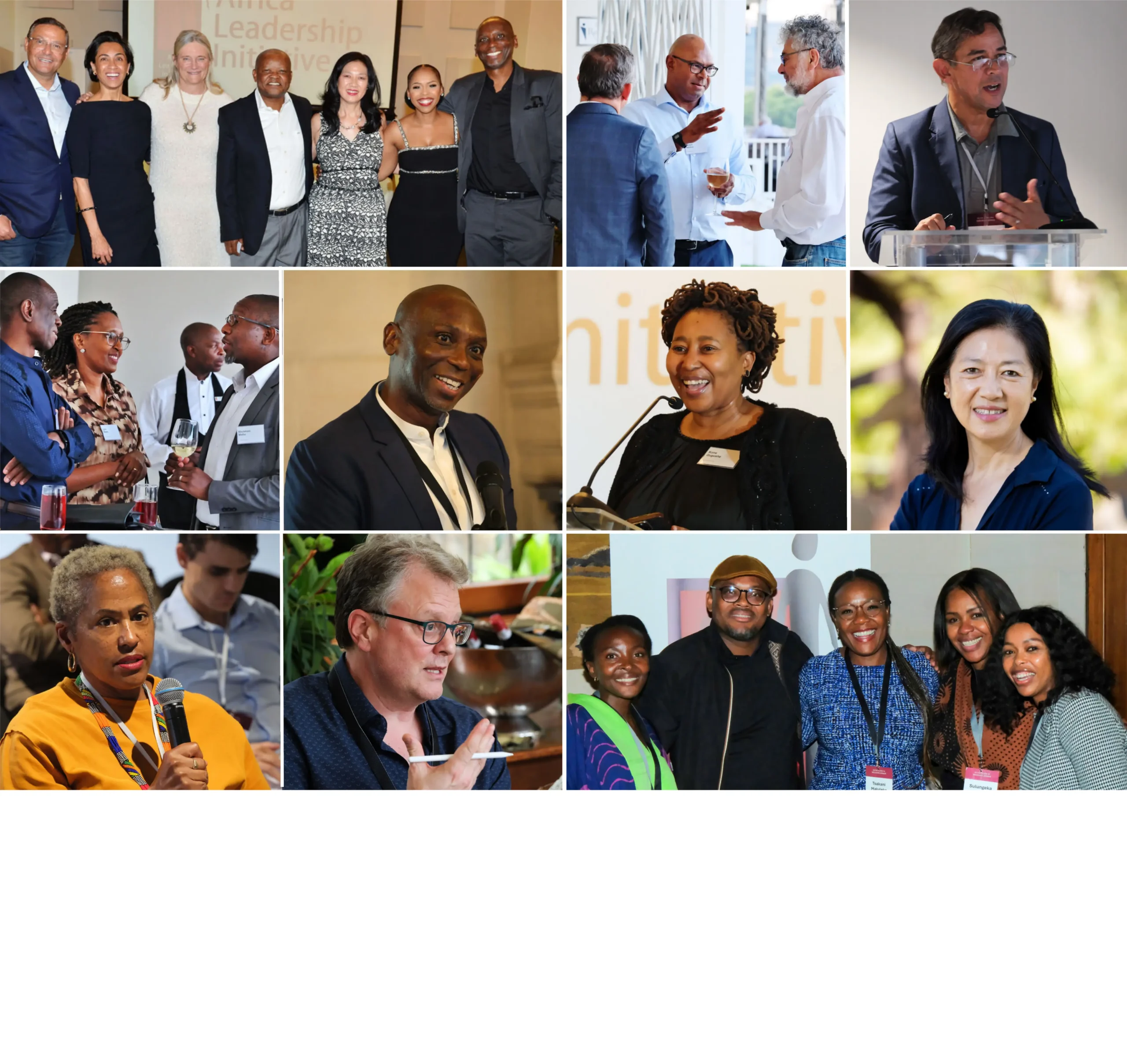
By Karl Gostner.
On the opening night of the Forum, Pulitzer Prize winner Dele Olojede was in conversation with Donald Kaberuka, who amongst many roles has been Rwanda’s Minister of Finance and President of the African Development Bank.
Mr Kaberuka outlined themes that I would hear echoed throughout our stay in Kigali. It is an amazing feature of Rwandan life: topics like good governance, effective execution and reconciliation turn up in everyday conversation. It is evidence of powerful policy that is clearly and consistently communicated and visible in action. Lessons for any leader.
According to Mr Kaberuka, Rwanda is small in all respects, but its size will not deter the country from the one important feature that sets them apart – its ability to set the world an example.
African passport holders get an automatic, and free, thirty-day visa at the airport. Not only does that enable ease of travel, but it also removes a point of corruption. You can register a business in 24 hours. Later on during our visit we spoke to young entrepreneurs from all over the continent. They laughed as they contrasted their Rwandan experience with their home countries. At home they drowned in bureaucratic processes, sometimes a hand extended under the table, sometimes disregard because an ageing official deemed them too young to be a business owner. They now lived and worked in Kigali.
Strategy – you can be Rwanda
Rwanda embodies a powerful innovation principle – experiment with solutions in contained spaces and when they have momentum, scale. And an even more fundamental one: if you create momentum it reduces friction.
Kaberuka explained that the country and its citizens know that they are the sum of their individual actions, that every action has the power to build or destroy. This is easily witnessed in the cleanliness of Kigali’s streets.
South Africa’s GDP per capita is 9 times that of Rwanda’s. We do not have a city that is as clean and ordered as Kigali is. Rwanda shows that it is possible. No town need to have piles of litter. It requires leadership, vision, action, and consistency, but it is possible.
He said that post’94 they consistently placed each action in the framework of future aspirations, the simple test was: Will this action help us create the country we want?. It is a principle you can apply to your life and to your business.
He noted that humans tend to list problems. He said the Rwandan people had set a different rhythm, they acted until they found solutions.
You may think that your life is small, but you too can be a Rwanda, you can shape what others imagine to be possible.
Self – “to truly listen, you need to give up the power of words”
Acclaimed director, producer and founder of the Ubumuntu Arts Festival, Hope Azeda, was the gathering’s master of ceremonies. After Olojede and Kabiruka had concluded their discussion, she mused that she now knew what it was like to witness two human libraries in conversation.
Between the notes of laughter, she wove in strands of insight. On that first evening, she reminded us that “words are spirits that walk with you. They have power”.
In this TedX Talk (ignore the subtitles, there’re a few mistakes), she speaks about her experiences in staging Africa’s Hope, a stadium performance commemorating the 10th anniversary of the Rwandan genocide, performed for an audience of 30,000 with a cast of 1,000 people.
She reflects that the process was intense, saying: “At some points when words failed us, we had to stop, and a loud silence walked in, and we had to just listen to what our hearts spoke to us.”
The process was intense, as were the time pressures. She explains that couldn’t say “Come on guys, cry very quickly. We are running out of time”.
It is something we can all resonate with. There is a big project that needs delivery, there are time pressures, and we know that we need to connect and listen, but we want to push on regardless.
Azeda explains that, pressed for time, she pushed the band to adopt a particular melody but one of her lead vocalists rebelled. She said that she didn’t feel it, it didn’t do justice to the question of why history kept repeating itself. She demanded that they pause and search for something better. They did and they found it.
Sometimes, we’re the vocalist, we need to demand to be heard. It is all too easy to go with the flow. Sometimes we’re Hope, we need to pause to listen, stopping right there in our time tracks to find the right solution.
She says that “to truly listen, you need to give up the power of words”.
Soul – “art provides you with a microphone to express your heart”
On the Friday night, we were blessed to see one of her productions at the Kigali Genocide Memorial. The performers were from Generation 25 – they were born post genocide, and yet the genocide echoes in and shapes their lives.
Azeda reflected that some things need “permanent conversation”.
This is true of so many parts of life. Not everything can be solved or cured, some things require perpetual care, never-ending attention and permanent conversation.
Hatred, dogmatism, and toxicity always lurk in our world. We need to be ever-vigilant. The creation of hope, the nurturing of opportunity, and the building of momentum all require relentless attention.
The world is dynamic, no solution is ever permanent – in our lives, our companies, or our communities – our caring action can never cease.
Her young co-producer, Yannick Kamanzi, said: “We’re from a country that experienced death but chose life”. Hope echoed him saying: “Your history is your shadow, but your shadow doesn’t define you”.
As she closed the evening she said that “art is a master kit to open difficult conversations…to vomit whatever is choking you…art provides you with a microphone to express your heart”.
That led me to her 2018 opinion piece entitled Can Art Heal a Broken Society?. In the text she notes that “anger in a wounded people can run deep. That’s why we must shield young generations from actions fuelled by despair”. She declares: “We’ll be relentless: telling stories, pursuing healing, and striving for peace in a broken world”.
She writes that “the beauty of art lies in its ability to deal with the unspeakable. Art can revisit traumatic scenarios and horrific moments in human history on an emotional level that few other methods can accomplish” and “empathy spearheads social change. The reciprocity of emotions spring from audience to performer, observer to participant. We aim to curate the festival to prompt everyone to act in kindness, regardless of background”.
I wish you a week of curated kindness, first for yourself and then for those around you. No matter the pain, Rwanda shows us that hope is always alive, so long as we act.
By Karl Gostner.









